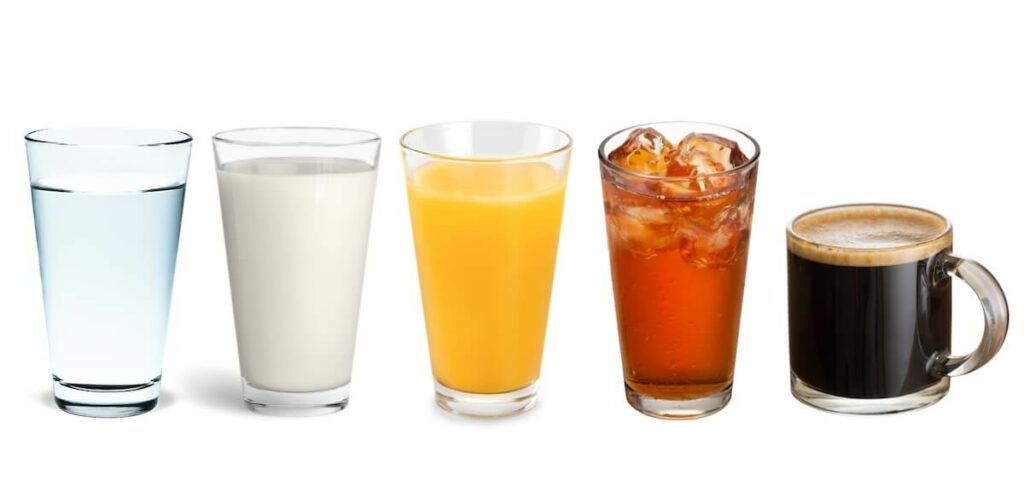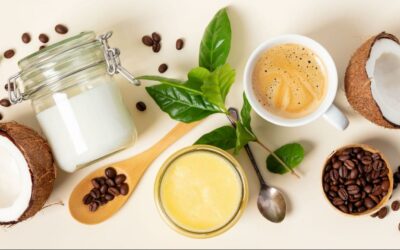Over the summer, hundreds of you sent us an article with the title Which drink is best for hydration? Hint: It isn’t water. With the summer sun at its peak, this is the perfect clickbait title. But as soon as you open the article, you are blasted in extra large, bold typeface: “Milk is more hydrating than water”. Can that be true? Let’s dig in. 
The Study
This article was based on a 2016 study that was trying to assess how different beverages affect hydration status. It was funded by Coca Cola (who owns Fairlife), which is suspicious from the start.
The participants included 72 men. They were all physically active men, but did not follow a formal exercise plan. Before the study, they were not allowed to participate in hard exercise for 24 hours and fasted for eight hours overnight.
The men drank one liter of water or one of three commercially available beverages (including water varieties, dairy milks, sodas, sports drinks, coffee, tea, and beer). For the next four hours, they remained seated in a semi-reclining position (except during urine collection) in a 61 – 68 F room with low humidity. The authors measured hydration by calculating the amount of water retained two hours after drinking (corrected for the fluid content of each beverage) relative to this value after drinking water. They returned to the lab to drink a different beverage on other occasions, enabling multiple comparisons.
When you are simply sitting in a cool room, do you feel particularly thirsty? Keep that in mind as we continue…

The Results and Flaws
Three beverages led to greater fluid retention than water: an oral rehydration solution (ORS), whole milk, and skim milk. But before we blindly accept this conclusion, let’s look closer at the methodology. Food has a huge effect on hydration (think of eating watermelon compared to saltines), yet the participants were in a fasted state. Eating a standardized breakfast would have yielded more reliable results, but likely would have negated any differences between beverages. For this study, a contrived scenario where people fasted overnight and skipped even a bite of breakfast was required to detect differences, tremendously limiting application to real life.
The other huge flaw is that the participants sat in a chair and did nothing but collect urine for four hours, yet the researchers did measurements at two hours. Why? The authors give four reasons, and two are worth noting here:
- Drinks began to show differences at two hours (not sooner).
- “In a typical day, most people would expect not to have an interval longer than 2 h between drinks, and any subsequent food or fluid ingestion would override the effects of the initial drink.”
So basically, the researchers admit that there is no difference until 2 hours, but also people don’t go longer than 2 hours without taking in fluids. So what’s the point of this research? The authors themselves are making it sound useless.
What do we do with this?
Most of the time, it’s poor science to say that a result can apply to a population other than that studied. It may be a useful starting point for designing future studies, but more research is needed rather than extrapolating conclusions.
The sensational headlines wanted to apply these hydration results to athletes, yet athletes were excluded from this study. Additionally, the participants were sitting the entire time, so the results definitely should not be applied to hydrating during or after exercise.
The authors used these results to establish a Beverage Hydration Index (BHI) that could be used to make a hierarchy for hydration rankings. They envisioned it becoming as ubiquitous and useful as the glycemic index, but for hydration. We will cover its proposed applications and inherent flaws in Part 2 of this series.
Conclusion
It’s bad enough that the dairy industry is publishing studies with such flawed methodology. It’s even worse when the media picks it up and gives it attention, misleading the public that does not have the time or interest to dissect this study for the truth. Before you believe any headline, make sure you’re going back to the source or a reliable resource that can help you interpret it. The bottom line is that dairy products of any kind are problematic for humans, and especially athletes.








